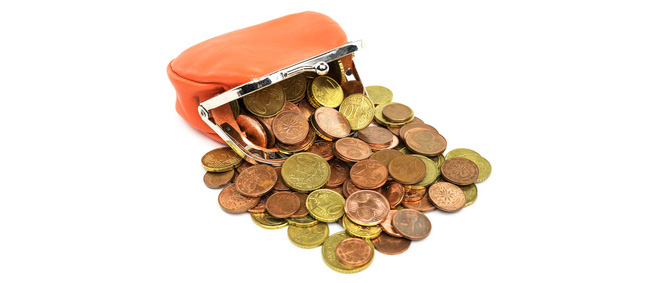
Did you know? The legal limits to paying in coins (plus a bit on bitcoin)
Here’s a scenario for you - you win a huge court case, and your very vengeful opponent (believing perhaps the Apple v Samsung rumour recounted above) turns up at your doorstep with a convoy of coin-filled trucks. Must you accept the payment?
Scenario 2: You’re a landlord. Your tenant, angry with you for some reason, decides to punish you by marching into your office with next month’s rental in 5 cent pieces. What are your rights?
Now you’re a shopkeeper whose customer wants to pay for his groceries with R500 worth of R1 coins – can you refuse to accept them?
Or perhaps you are a disaffected motorist issued with an unfair (you think) traffic fine. Revenge being sweet, you decide to inconvenience the municipal teller by paying the fine with the most complicated mix of different coins you can think of. Must the teller spend the next hour counting coins?
Legal tender – the limits
The answer to all these questions lies with the South African Reserve Bank’s policy on what or what is not “legal tender”. If it is, you must accept it. With banknotes, any amount may be tendered, but with coins the following limits apply for each individual transaction-
- In R1, R2 or R5 coins: R50.
- In 10c, 20c or 50c coins: R5.
- In 5c coins or less (no longer being minted, but still legal tender): 50c.
Bitcoin: What’s the Buzz?
Bitcoin on the other hand is a very different animal – it’s the most used virtual currency and it’s giving governments sleepless nights. Decentralised, borderless, neither linked to nor controlled by any bank or banking authority, it lends itself to anonymity (more correctly “pseudonomy”) and a kind of Cyber Wild West – with no law-enforcing Sheriff in sight. That may change as authorities increase their efforts to regulate it – or at least to monitor it for financial crime like money laundering, tax evasion, breach of exchange control regulations etc - but it remains to be seen how successful they will be.
Here in South Africa, Bitcoin is currently –
- Perfectly legal to use, but not “legal tender”, so no one can force you to accept it as payment. If you do, be sure to comply with FICA and other local regulations (take advice in any doubt).
- Packed with potential. We are all feeling our way on this one, and as always, great opportunity and great risk walk with us hand-in-hand. If you invest in Bitcoins – and some investors have made fortunes doing so - beware of possible grey areas around tax treatment and exchange control laws.
- Very much accepted and used at your own “sole and independent risk” (quote from SA Reserve Bank). You have zero legal protection, no guarantee of value, convertibility or stability, and exposure to hacks, fraud and theft. Bitcoin enthusiasts refute many of these supposed risks but for now it seems safer to proceed on the basis that you could lose everything in the blink of an eye or you could make a fortune; no one really knows.
Provided by Taylor and Finlay Attorneys
© DotNews. All Rights Reserved.
